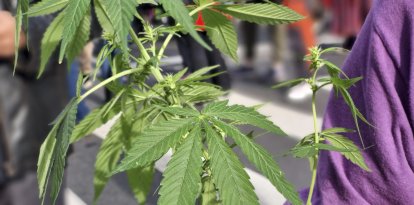Killing 200,000 cows: the Irish government's plan to meet climate standards
The Irish Department of Agriculture proposed reducing 10% of livestock in the country to cut methane gas emissions.

(
The Irish Department of Agriculture published some proposals on measures to be taken in order to reduce the country's environmental impact. The one that stood out the most was the reduction of 200,000 dairy cows throughout the country.
They would meet this reduction by slaughtering that number of cows. The measure is expected to reduce the number of cows throughout the country by 10%, at a rate of approximately 65,000 cattle per year over a period of three years. The goal is to reduce methane gas emissions by 25% to 30%. It would cost $650,000.
European Union orders
The Irish government considered it to be a pressing situation, as the agricultural sector is responsible for 38% of polluting emissions in the country. Ireland committed to reduce its emissions by 2030, which now leads it to take drastic measures.
Farmers and members of the agricultural sector are against the the pro-European conservative government’s environmental policies. "It's almost like we have a bullseye on our back," Gearoid Maher, owner of 110 cows, told the Financial Times. "The media portrays us as climate killers and climate deniers. We are the first to see climate change. We do our bit to change things."
A key industry for Ireland
The Irish dairy industry is far from insignificant. It brings $14.21 billion annually to Ireland's economy. There were also 54,000 jobs and $7.38 billion in exports in 2022. According to farmers who oppose the government's measures, it is not only an attack on this sector. There is also a risk that the country’s milk, butter and cheese will come from countries with worse ecological credentials than Ireland.
In accordance with the government's full proposal, which was accessed by Irish outlet Independent.ie, the government will provide compensation for farmers, estimated at around $3,250 for each cow. That would mean more than $200 million in compensation per year. According to the Financial Times, this is not yet included in the budget.
With just over a year to go before the elections for a new government in Ireland, there are rising doubts about the adequacy of these policies. In an essentially rural country, the rural vote is of great importance and the current conservative government could lose it because of a policy that European columnists compare with pagan sacrificial traditions for the new ecological religion.

























